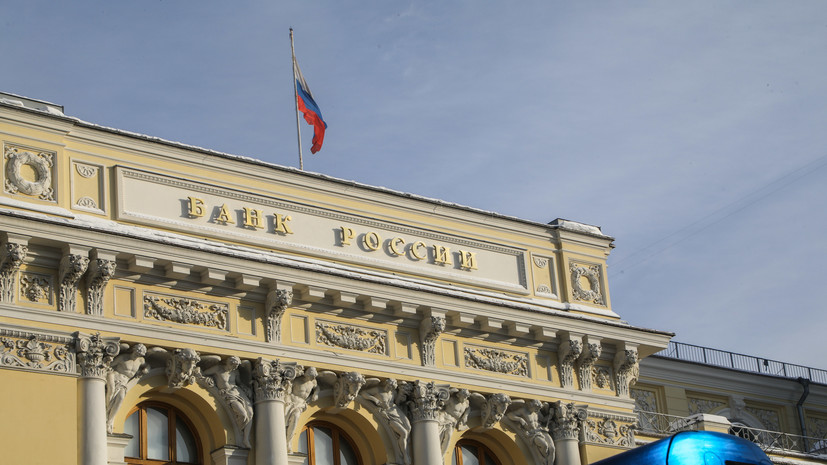The Central Bank of Russia decided to revoke the license to conduct operations from Bank Hephaestus.
This is stated in a message published on Wednesday, February 28, on the regulator’s website.
As the Central Bank explained, the credit institution violated laws regulating banking activities, as well as regulations of the Bank of Russia.
At the same time, the company systematically failed to comply with the requirements of legislation in the field of combating the legalization (laundering) of proceeds from crime and the financing of terrorism.
The regulator also noted that the bank’s business was ineffective and captive (serving the interests of only a narrow circle of people).
In this regard, the credit institution remained unprofitable for a long period, the Central Bank emphasized.
“A significant share of the bank’s corporate loan portfolio was accounted for by legal entities directly or indirectly related to its beneficiaries.
At the same time, more than 60% of the loan portfolio consisted of low-quality loans.
Against this background, the credit institution carried out operations (transactions) that ensured formal compliance with capital requirements,” the press service of the Central Bank said.
Over the past year, the regulator has repeatedly applied supervisory measures against Hephaestus Bank, in particular limiting the attraction of depositors’ funds.
Nevertheless, the company ignored the instructions of the Central Bank to eliminate the identified violations in the field of information security.
“By order of the Bank of Russia... a temporary administration has been appointed to LLC CB Gefest... (It. -
RT
) will operate until the appointment of a bankruptcy trustee or liquidator.
The powers of the executive bodies of the credit institution have been suspended in accordance with federal laws,” the Central Bank added.
As the regulator clarified, in terms of assets the company occupied only 336th place in the Russian banking system.
Nevertheless, the organization remained a participant in the deposit insurance system, so all depositors will be returned 100% of the balance in their accounts, but not more than 1.4 million rubles per person (including accrued interest).
The Deposit Insurance Agency (DIA) plans to begin payments no later than March 13.
In total, we are talking about 181.2 million rubles.
As the DIA clarified, the process of bank liquidation may take at least a year, and throughout this period depositors can submit applications for payment of insurance compensation.
© RIA Novosti / Alexey Sukhorukov
It is noteworthy that the revocation of the license of Gephaestus Bank is the second case in the industry over the past week.
Let us recall that on February 21, the Central Bank applied a similar measure against QIWI Bank and also explained its decision by the fact that the credit institution systematically violated the laws and regulations of the regulator.
The Bank of Russia resumed the practice of revoking licenses after a year and a half break.
Thus, in 2023, the Central Bank never resorted to this measure, and in 2022 it applied it only twice, which was the minimum over the previous ten years.
“Recently, cases of illegal operations have become more frequent in Russia.
We are talking, for example, about the export of capital, cashing out and other dubious transactions.
In addition, against the backdrop of high interest rates and, as a result, a slowdown in lending, even some healthy banks are facing financial difficulties and are trying to solve the problem of lack of liquidity using not entirely legal methods.
Therefore, the Central Bank strengthened control and began to apply more stringent measures,” Sergei Suverov, associate professor at the Financial University under the Government of the Russian Federation, told RT.
However, in his opinion, we should not yet expect a massive purge of the banking sector.
As the specialist noted, the industry as a whole “looks stable” and earned record profits at the end of last year.
Thus, “it is not yet possible to talk about the presence of systemic problems in Russian banks,” but the regulator will closely monitor their performance and specifically eliminate weak or unreliable market players, Suverov is sure.
A similar point of view is shared by Alexander Razuvaev, a member of the supervisory board of the Guild of Financial Analysts and Risk Managers.
According to him, the economy has fully recovered from the sanctions shock, the stock market has recovered and more and more companies are starting to go public, including among representatives of the banking sector.
Against this background, the Central Bank again began to remove from the market those who continue to conduct dubious transactions, the expert believes.
“Large banks, whose shareholders include large corporations, are quite reliable.
Small banks that support large businesses are also quite stable and will remain in the market.
So the actions of the Central Bank do not mean a worsening of the situation in the banking sector,” concluded RT’s interlocutor.

